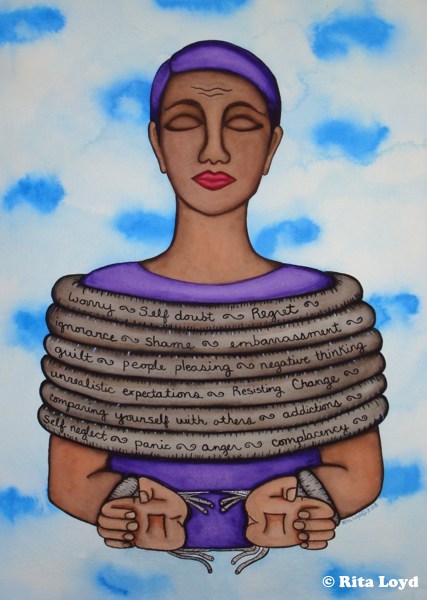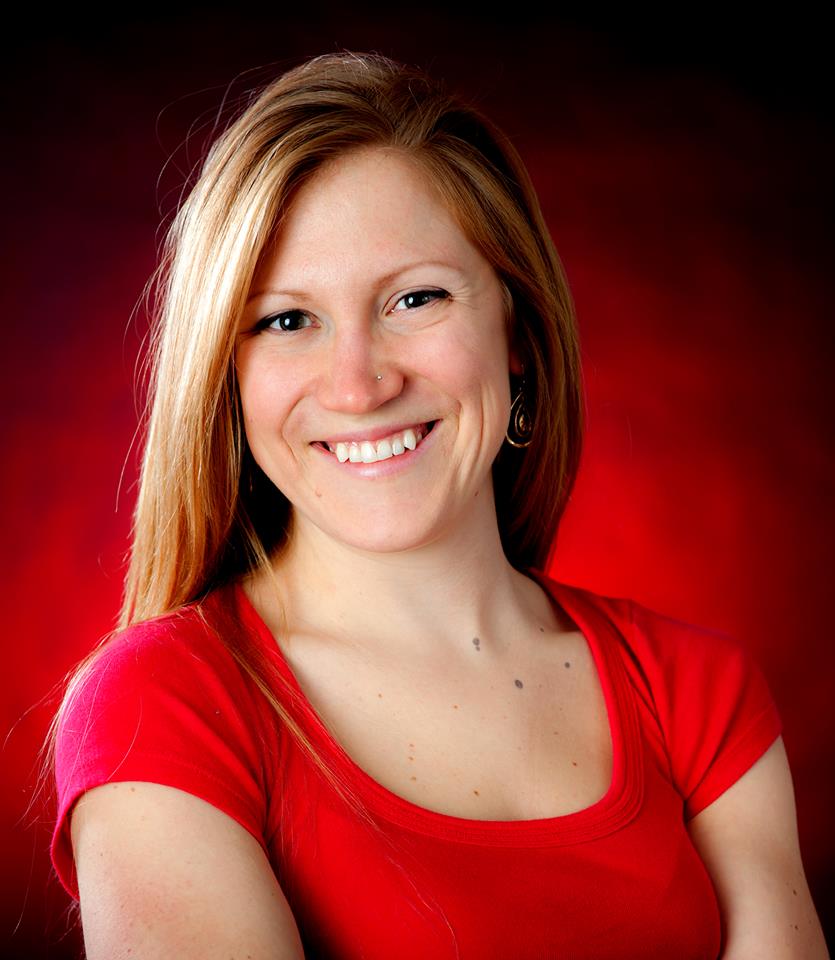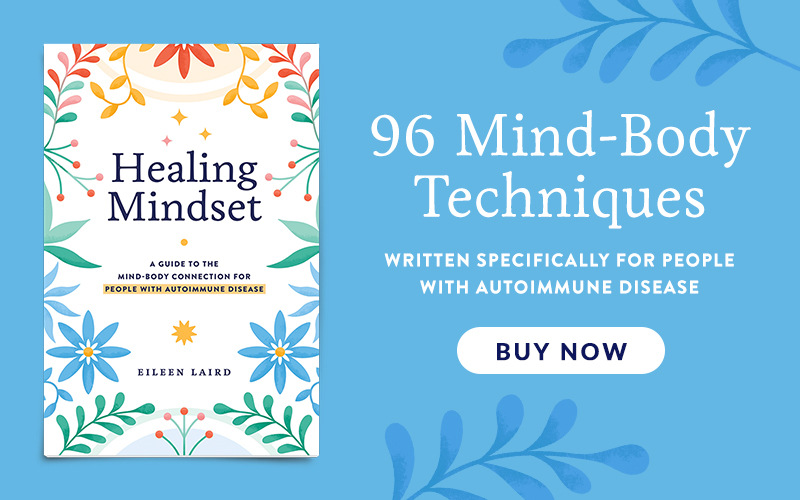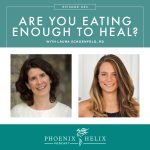“As a woman living in modern Western culture, you have surely experienced pressure to conform to body image norms at some point. You saw a magazine. You went to a mall. You hung out with your girlfriends. How does it feel to think your body needs to look a certain way in order to be beautiful? Downright awful in my experience. Allowing body image norms to permeate your conscious is the first Old Rule that needs to be done away with. It can make you resent your body, make you feel uncomfortable in your own skin, and put you at war with your very self.”
~ Stefani Ruper
Who is Stefani Ruper?
- Author of the blog, Paleo for Women, she leapt onto the paleo scene writing from the radical perspective that men’s and women’s bodies work differently. She questioned the practice of intermittent fasting and ketogenic diets for women, and wrote the book (literally) on PCOS and hormone imbalances.
- Host of the podcast, Live Love Eat, she led heartfelt conversations about the intersection between food, emotions, and body image.
- Author of the book, Sexy By Nature, she’s a fierce advocate for women embracing optimal health through self-love.
- Stefani herself started restricting her diet at age 10, trying to achieve “the perfect body.” She eventually learned to love her natural size – one that supports robust health, and is now a nationally renowned counselor, helping others do the same.
- While Stefani’s work focuses on empowering women, she loves men as well, and our discussion today applies to both genders.
Why I Called Stefani for an Interview
Healing autoimmunity through diet is an experience that has changed my life, but the fact is, healing diets are restrictive. We remove foods that exacerbate our autoimmune symptoms. We also add in foods that nourish us on a cellular level, so we can heal. It’s a completely new way of eating that’s incredibly challenging at first. Food is an emotional experience for us all, but especially if you struggle with eating disorders. I’ve gotten emails from readers asking how they can navigate the paleo autoimmune protocol (AIP) without triggering disordered eating behaviors of their past. I’ve also seen conversations in the AIP Facebook groups that hint at some people using the AIP as an excuse to eat less. I’ve personally experienced fear of food, once I learned how it can exacerbate my autoimmune disease. My goal with this blog is to help us heal in every way, and I think this is a really important conversation to have. So, I called in an expert.
Stefani, tell us a little bit about your background with eating disorders, both personally and professionally:
I started dieting with a body image mentality when I was 10 or 11 years old. I grew up in a house with dieters. In high school, I woke up and worked out at 5:30am, ate very restrictively all day, and then worked out for an hour and a half again in evening. It was very punishing to my body. Then I would overeat, because I couldn’t keep up that level of restriction.
In 2009, I finally achieved the body image I sought, but it required losing so much weight that I stopped menstruating. I was also vegetarian at the time, and I ate a no-fat diet, literally. So, here I was: infertile with cystic acne. I was the size I wanted to be, but I wasn’t healthy. I went paleo hoping it would fix my health problems, but it didn’t. I finally realized it wasn’t the food, but the restrictive way I was eating that was making me unhealthy. I got angry at society for making me think I needed to do this to be healthy and beautiful. Then, I got indignant on behalf of others. I started blogging about this issue and got this topic into the paleosphere.
Professionally, I’m not qualified to diagnose eating disorders (anorexia and bulimia). In severe cases, those conditions might benefit from pharmaceutical intervention and inpatient treatment. However, I work under the larger umbrella of disordered eating, and have a consulting practice where that is one of my specialties.
There are people in the autoimmune community who have a double diagnosis: autoimmune disease and a history of disordered eating. The paleo autoimmune protocol is an incredible tool for healing, but its restrictive nature can trigger old patterns. What’s your best advice for people in this situation, who want to be healthy in every way?
To eat the AIP in the least controlling manner you possibly can. So, that means buying ALL of the foods on your OK list in high quantities and then having those be the foods in your house. (Check out the Paleo Approach for a list of over 500 hundred foods you can eat.)
Know that you are choosing to follow this protocol to be healthy. This isn’t about restriction. Eat these foods as much as you want, however you want. And don’t think about calories at all. You don’t need to rigidly monitor your intake; in fact, it’s best if you don’t.
Also see the big picture. Do the best you can with the protocol, but don’t freak out about it. Be patient with your autoimmune healing, have faith, and trust the process. If you find your eating disorder being triggered anyway, get some professional help.
Does your advice differ, depending on the eating disorder?
Whether you’re an overeater or undereater (and chances are you’re both), my advice is always, always the same: That you figure out where your negative self-talk and body image comes from, learn how you feel about your body, develop a positive relationship with your body, over time you learn to love your body so much that you focus on nourishing it over all other things. Instead of forcing it to look a certain way, you learn to let it look the way it needs to be healthy.
My next question is a bit of a live bomb. There are some people in the AIP groups online who appear to be using the AIP as a mask for their eating disorder – as an excuse to eat less. We’re in the business of helping people, so this is a concern for all of us. But we also don’t want to judge anyone. How can we speak lovingly to this possibility?
I encourage everyone doing the autoimmune protocol to ask themselves the following questions:
- How do you feel about your body?
- What is your emotional state when you eat?
- How much do you consciously control your food intake in terms of portions?
- Do you count calories?
- Do you ever feel guilty for eating?
- Do you analyze your food choices at the beginning and end of every day?
- Are you trying to avoid death? (Because everyone dies, regardless of diet.)
- Do you have a diagnosed autoimmune disease, or are you pursuing this diet for other reasons – to achieve perfect health, or the perfect body.
The AIP is an effective treatment for autoimmune disease specifically, but it’s not a healthy diet for the general population. Paleo eaters are into the idea of eliminating foods to make them healthy, so they think the AIP is the healthiest diet of all. It’s just not true. The nature of its restriction makes it hard both psychologically and nutritionally. You shouldn’t do it, unless absolutely necessary.
What are the most unhelpful things you could say to someone you suspect has an eating disorder?
- I think you looked better before. That seems like a good thing to say, but that’s judgment about how they look, and they already feel insecure about that. Now, they’re likely to feel judged, more insecure, and possibly afraid.
- You look great. With disordered eating, people are very concerned with their appearance. You don’t want to affirm or elevate that concern. The most important thing is to reassure them of their worth independent of the way they eat and how they look.
- I think you have a problem. You don’t want to imply they’ve done anything wrong and add to their feelings of low self-worth. It’s very difficult to do this conversation well. You need to be honest, loving, non-judgmental, and know that person very well. Treat it as a discussion, not a lecture. Ask questions, rather than make accusations. If you don’t know what to say, it’s better to say nothing. Simply love them and be a good role model yourself. People rarely change, based on a conversation. They change when they’re ready.
Sometimes the AIP can actually cause an eating disorder – a fear of food. Once you experience how certain foods can exacerbate your disease, it’s common to blame food for all symptoms, and resist expanding your diet, even after your symptoms improve. What advice do you have for this situation?
Take it one day at a time. Every time you eat something new and have a different reaction, you learn something about yourself and your body. That’s empowering knowledge, and you won’t get it if you don’t try. It’s OK to take it slowly and do it in a way that feels safe. If you have a negative reaction, you can take a step back. Or, you might discover you can tolerate more than you ever thought you could. The ultimate goal is to go back to living your life. Don’t let your world be smaller than it needs to be – and that includes the world of food.
Note from Eileen: I wrote a food reintroduction e-book to safely guide you through this process.
If someone wanted to hire you as a consultant as they navigate autoimmune healing and disordered eating, how would you help?
- I would support you in whatever way you need, individualized to the person.
- I would bolster your love for your body and your respect for your body’s healing process.
- I would help you believe in your body and develop gratitude and appreciation for all it’s doing.
- I would help you think about your diet as a nourishing, exciting thing you’re experimenting with. In doing so, I would help you see it as a choice that’s bringing you greater health and self-knowledge, rather than something that’s restrictive and controlling and scary.
- And finally I would do my best to mitigate any fear you have about outcomes. Everything is OK, this is a learning process, and you’re doing everything you can. This is an important step, it might not be the last one, but you’re moving forward, taking each day as it comes.
You May Also Be Interested In
Art Credit: A huge thank you to Rita Loyd for the artwork at the top of this post. She has a whole gallery of beautiful images at the aptly named http://nurturingart.com. She kindly gave me permission to include one for this article.









Thank you for this! The AIP was a trigger for me, and I am now working on minimizing the issues that come with that. It’s a split focus and it’s tough to manage, but this helps a lot and I am so, so glad to know that I am not alone in this.
You are definitely not alone, Elisa. I hope you have some good support as you reach for that balance.
Your website is full of wisdom! At one point I was mostly recovered from my disordered eating. When I started working with alternative practitioners they tinkered with my diet and I became obsessed with removing food after food to try and reduce pain. I ended up very fearful of food and in need of help. It took me a year after reading about this diet to get myself to a place mentally where I could safely try it. With the help of a good counselor I was able to admit that sometimes I wasn’t sure if I was restricting foods out of fear of gaining weight or because of my health. Several months ago my holistic doctor suggested an elimination diet because of lack of progress with chronic inflammation. I was so proud of myself for telling him no. I was honest, but direct. I admitted that I had an eating disorder and told him I was not ready yet. Surprisingly I am ready now. I found a terrific support group in which I am accountable to another person daily for what I eat. The founder of the group has become my mentor. We talk frequently and she even prays with me. I am so grateful that you are sharing this very real pitfall that can occur with “healing,” diets. I had no idea at the start of my healing journey that this could happen and hope that other people can find the support they need if they find themselves in the predicament of needing a healing diet, but struggling with an eating disorder.
Thank you so much for sharing your story! You show such wisdom, vulnerability and strength. Someone is going to read your comment and see themselves reflected there, and it’s going to make a big difference in their life. I’m so glad you found a wonderful support group and mentor, and I believe you will be very helpful to people within that group as well.
Can I encourage readers to be considerate of the FLIP side of this, too? It’s very hard to be – explicitly or implicitly – “accused” of having an emotional/psychological eating disorder when you’re underweight from battling with the physical issues and haven’t figured out what is and isn’t working. I constantly get comments that make me want to yell, “I KNOW! I KNOW I’m underweight. I’m doing the best I know to do to figure out what I can eat that doesn’t make me feel so sick that I then can’t eat!” It’s just as insensitive and does just as much to put the focus on *appearance* rather than optimal health.
Absolutely, Rachel. Angie from Alt-Ternative Autoimmune wrote about this recently on her blog, because she can totally relate to your experience. Thanks for sharing the flip-side.
Thank you for the great link!
Wow great post!!!! I think that the most important part is what Stefani said about un-helpful things to say. Having been there done that with the bad mind space and eating….saying that someone is looking different, skinny, or unhealthy is almost like a pat on the back recognizing that the disordered behavior is actually making visible changes. Nice post about a difficult topic!
Thanks, Mikaela – for the compliment, and for sharing your experience.
Great interview and article!
I too have noticed the tendency for some AIP people to fear food and be reluctant to reintroduce anything.
I have also noticed the tendency for some to blame every single ache, pain, headache or other symptom on what they have eaten. There seems to be a prevalence of “I have a headache, I ate (insert any AIP-food) today. Should I cut it out of my diet?” type of questions, when the real cause of the headache (or whatever symptom it is) could be totally unrelated to what they have eaten. In the case of the headache, it could be that you are tense, stressed, had poor posture at work and your neck muscles are acting up. It could be weather related, hormone related, you could be dehydrated… It should only be attributed to what you are eating if you ALWAYS get a headache when you eat that food…
Excellent point, Salixisme.
Hi Eileen – I am pretty new to the AIP online community and was curious as to why Stefani stated that the AIP is not a healthy diet for the general public. How can it be healthy for people with autoimmune issues if it is not a healthy diet in general? Just curious about your thoughts on this.
Thanks.
Hi Sheila. People with autoimmune disease have a very unique process going on in their bodies. Their immune system has lost the ability to distinguish the harmful from the harmless. On a molecular level, certain things can look the same: a virus, a food molecule, part of a human cell. When the body can’t tell the difference, it goes into an alarm state easily. The autoimmune protocol temporarily eliminates foods that can amplify this autoimmune process.
For people without autoimmune disease, there is absolutely no reason to eliminate these foods. They are nutrient-dense, healthy parts of a whole foods diet, and they don’t cause autoimmune disease (that’s a misconception). I would eat them ALL, if I could. In fact, the autoimmune protocol is designed to be temporary, even for people with autoimmunity. The goal is to be able to reintroduce these foods as we heal. The more diverse our diet, the better our nutrition.
Does that make sense?
This is a timely post for me, as I feel like I have become trapped with an eating disorder whilst trying to better my health issues by following a paleo/AIP style diet. I don’t have a diagnosed AI issue, however I seem to have problems with histamine and my digestion. It’s hard for me to pinpoint what is caused by diet and what is caused by my anxiety and stress. Food definitely affects my mood, but vice-versa too.
Hi PC. You’re wise to realize this. It sounds like it would be good for you to try to expand your diet beyond the AIP and address your issues in a less restrictive way. Have you ever considered consulting with a nutritionist or health coach? The Paleo Mom Consulting is a great group.
P.S. Synchronicity. I just saw that there’s a free online workshop going on this week on the intersection of food and mood. It’s called he Anxiety Summit: http://www.theanxietysummit.com/
Thank you, Eileen, for this interview & post. I have watched my previously-carefree teenage daughter & her friends enter high school this year & become obsessed & anxious about their bodies. The transformation from happy & carefree to obsessed & anxious has been heartbreaking to watch, and yet it is so ubiquitous as to be almost a rite of passage in our culture.
It is heartbreaking. Any chance they’d be willing to follow Stefani’s blog? She writes so eloquently about self-love and body image. If you wanted to start them off with one article, I’d recommend this one: http://www.paleoforwomen.com/lets-roar/ .